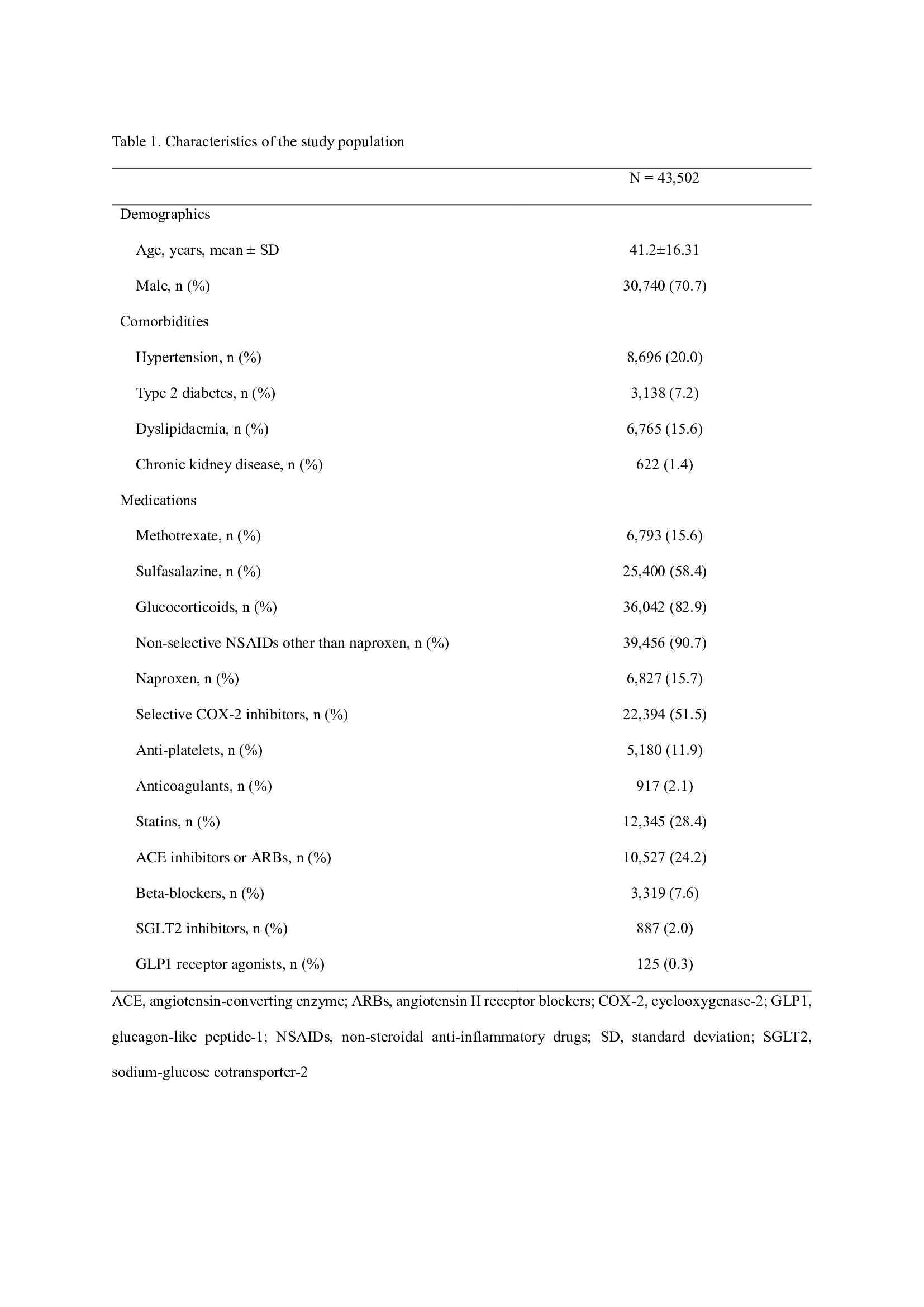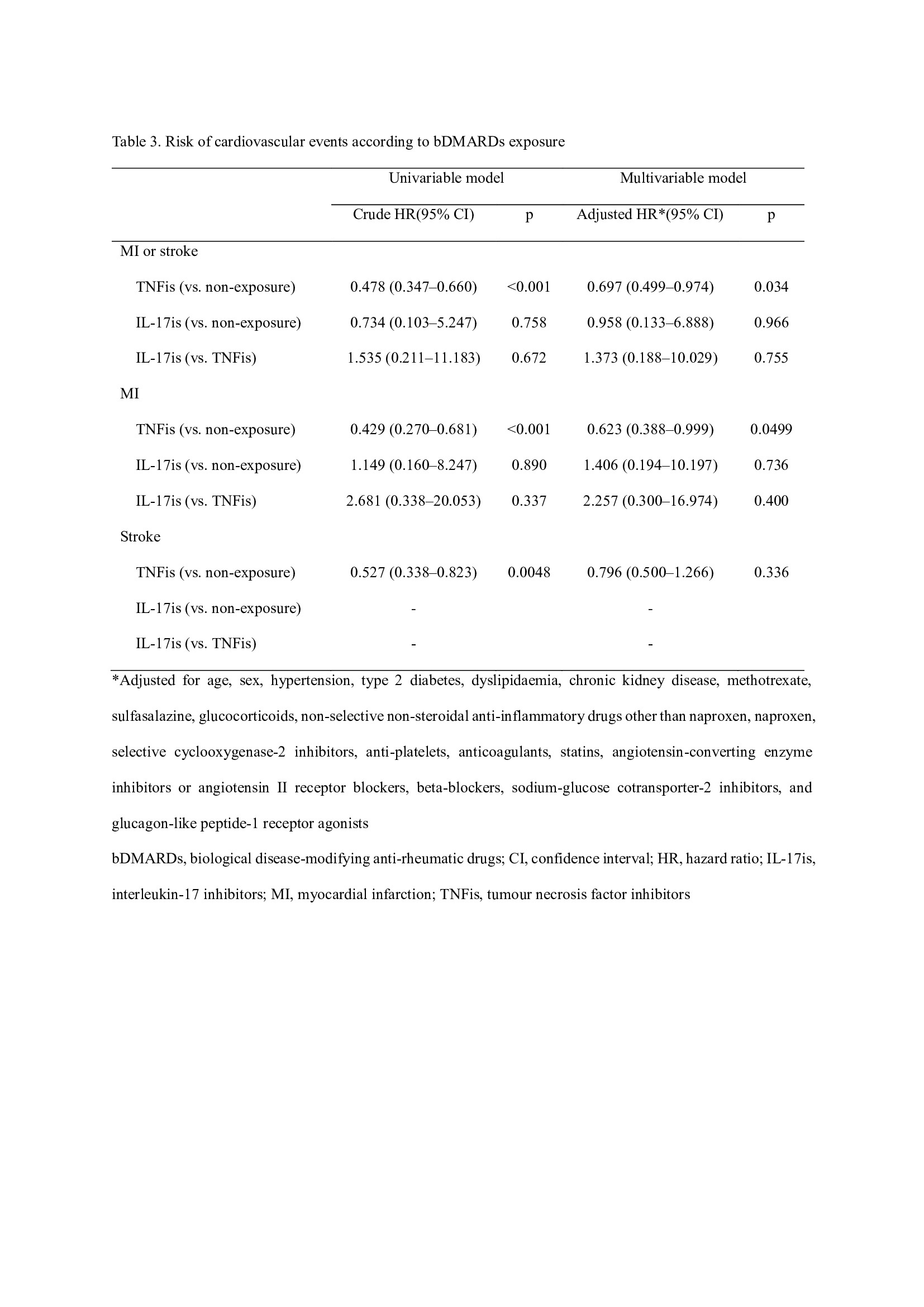Session Information
Session Type: Poster Session C
Session Time: 9:00AM-11:00AM
Background/Purpose: Patients with ankylosing spondylitis (AS) have a higher risk of cardiovascular events than controls. Although biological disease-modifying anti-rheumatic drugs (bDMARDs) are efficacious in treating AS, their effect on risk of cardiovascular events remains unclear. This study evaluated the risk of cardiovascular events according to tumour necrosis factor inhibitors (TNFis) and interleukin-17 inhibitors (IL-17is) exposures in patients with AS.
Methods: We extracted the data of 43,502 patients diagnosed with AS from 2010 onwards and without prior history of cardiovascular events from the Korean nationwide database. Cardiovascular events were defined as incident myocardial infarctions or strokes. Patients were followed-up through 2021. We used multivariable time-dependent Cox models to estimate the adjusted hazard ratios [HRs] and 95% confidence intervals [CIs] for cardiovascular events, comparing TNFis exposure (vs. bDMARDs non-exposure) and IL-17is exposure (vs. bDMARDs non-exposure and vs. TNFis exposure).
Results: The incidence rates of cardiovascular events in periods of bDMARDs non-exposure, TNFis exposure, and IL-17is exposure were 18.66, 8.92, and 12.87 per 10,000 person-years, respectively. TNFis exposure (vs. bDMARDs non-exposure) was significantly associated with a lower risk of cardiovascular events (adjusted HR 0.697, 95% CI 0.499–0.974), whereas IL-17is exposure (vs. bDMARDs non-exposure) was not (adjusted HR 0.958, 95% CI 0.133–6.888). The risk of cardiovascular events did not differ between IL-17is and TNFis exposures (adjusted HR 1.373, 95% CI 0.188–10.029).
Conclusion: TNFis exposure (vs. bDMARDs non-exposure) was associated with approximately 30% lower risk of cardiovascular events in patients with AS. IL-17is exposure had no significant association with the risk of cardiovascular events compared to bDMARDs non-exposure or TNFis exposure.
To cite this abstract in AMA style:
Kwon O, Lee H, Yang J, Park Y, Park M. Risk of Cardiovascular Events According to Biological Agent Exposure in Patients with Ankylosing Spondylitis: A Korean Population-based Study [abstract]. Arthritis Rheumatol. 2023; 75 (suppl 9). https://acrabstracts.org/abstract/risk-of-cardiovascular-events-according-to-biological-agent-exposure-in-patients-with-ankylosing-spondylitis-a-korean-population-based-study/. Accessed .« Back to ACR Convergence 2023
ACR Meeting Abstracts - https://acrabstracts.org/abstract/risk-of-cardiovascular-events-according-to-biological-agent-exposure-in-patients-with-ankylosing-spondylitis-a-korean-population-based-study/



